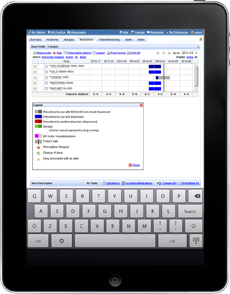Chronic Disease
Chronic diseases are prolonged conditions that often do not improve and are rarely cured completely. Diabetes, depression, congestive heart failure, hepatitis and asthma are examples of chronic diseases.
Chronic illness has a profound effect on the physical, emotional and mental well-being of individuals, often making it difficult to carry on with daily routines and relationships. However, in many cases, deterioration in health can be minimized by good care. This often depends upon individual choices made on a daily basis.
Chronic disease management is a systematic approach to improving health care for people with chronic disease. Health care can be delivered more effectively and efficiently if patients with chronic diseases take an active role in their own care and providers are supported with the necessary resources and expertise to better assist their patients in managing their illness.
Compliance
Compliance (or adherence) is a medical term that means the degree to which a patient correctly follows medical advice. Most commonly, it refers to medication.
High Blood Pressure
High blood pressure, or hypertension, means that the pressure of the blood in the arteries is too high (140/90 or more).
Often, this chronic condition does not have symptoms, but it can sometimes cause headaches, dizziness, or flushing. You must have your blood pressure checked regularly because this is the only way to diagnose the disease. Left uncontrolled, hypertension can lead to a heart attack, stroke, or serious kidney damage.
Prevention and control of high blood pressure depends essentially on healthy lifestyle habits such as maintaining a healthy weight, physical activity, avoiding smoking, and following a low-fat, salt-free diet rich in fruits, vegetables, and whole grains. Medication can also be prescribed to individuals suffering from hypertension.
Posology
The study of the dosages of drugs, especially the determination of appropriate dosages.
RAMQ
The Régie is the provincial database of dispensed prescriptions and medical services for Quebec. It administers the Health Insurance Plan and the Public Prescription Drug Insurance Plan, as well as a number of complementary programs. In this sense, it informs the public about the services it offers, manages eligibility for the plans and programs it administers, and remunerates health professionals for the care and services they provide to insured persons. In addition, the Régie ensures that its expertise and the information it holds are made available to the Minister, to researchers and to players in the health and social services network.


